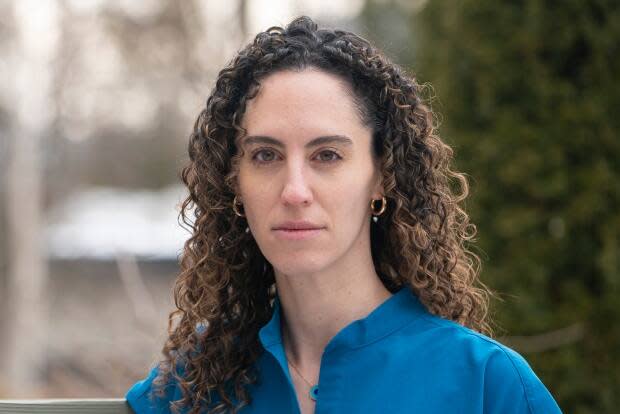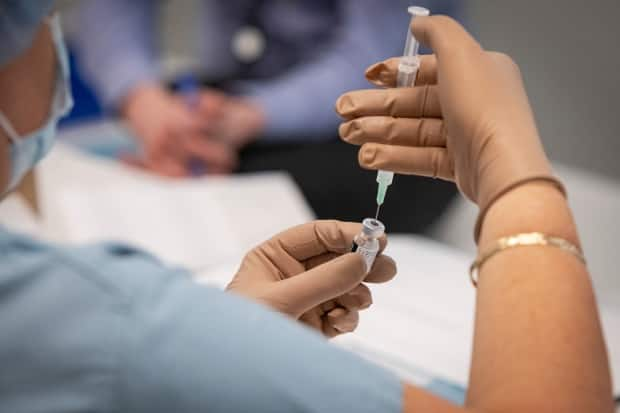Toronto doctors advocate for higher vaccine priority for pregnant people as ICU rates climb

Doctors who work with pregnant people are advocating for them to be put at a higher priority for receiving a COVID-19 vaccine, as more become sick with the virus during the third wave.
"This week, we've had 11 admissions to hospital with the majority of those patients ending up in the intensive care unit," said Dr. Wendy Whittle, head of labour and delivery at Mount Sinai Hospital in Toronto.
She said pregnant people with COVID-19 account for six out of the 20 ICU beds at Mount Sinai, a number "far" greater than what doctors saw in the first wave of the pandemic.
Pregnancy is a particularly dangerous time for people, and the risk increases with COVID-19 as those who are pregnant are already susceptible to respiratory infections due to changes in their bodies during pregnancy, said Whittle, who also leads the COVID-19 pregnancy program at Mount Sinai.
The third wave, fuelled predominantly by variants of concern, poses an even greater risk as the variants are far more transmissible, the symptoms are worse, and they last longer, she added.
With more hospitalizations of pregnant people expected during the unabated third wave of the pandemic, Whittle said she is one of many doctors pushing for the provincial government to get them moved up from Phase 2 of the vaccination campaign to high-priority.
'Young, healthy women' in ICUs
Whittle said it's not just people with underlying health issues in ICUs anymore.
"Now we're seeing young, healthy women who do not have any other pre-existing medical concerns," she said. "And so now it's not just a disease of those who are at risk, it's a disease of anybody."
The Society of Obstetricians and Gynaecologists of Canada has said that women who are pregnant and get COVID-19 do have additional and very serious risks compared to women who aren't pregnant.
Sarah Dunn, who is 15 weeks pregnant, says she and her husband are excited yet worried to be expecting their first child, given the heightened risk for complications amid the pandemic.

Dunn lives in a high-risk neighbourhood and due to health-related issues, is already considered a high-risk pregnancy.
She is pre-registered to receive a vaccine at a health centre given her hotspot postal code — not her pregnancy —though she has yet to receive a call. She's also been told to look out for mobile or pop-up clinics around her neighbourhood, but "we've not heard anything from anyone," she said.
Vaccine inequity, uncertainty
Dr. Tali Bogler, the chair of family medicine obstetrics at St. Michael's Hospital, said "it's very scary for pregnant people right now to know that they're at higher risk and they can't access the vaccine."
She said the uncertainty has led to anger, frustration and anxiety for pregnant people who are becoming more severely ill and ending up in the ICU.
Bogler, who co-founded a popular Instagram account called Pandemic Pregnancy Guide (the external links section of this page contains a link), is another doctor advocating for pregnancy to be considered a higher risk factor for vaccinations.
She said her account has been bombarded with messages from pregnant people about vaccine inequity, with many saying they've been turned away from hospitals while others have been able to get a shot.

She said Ontario lists pregnancy as a "risk factor," in its vaccine rollout campaign, which is below health conditions labelled "high" and "highest risk."
"At the end of the day, we're seeing something very scary with pregnant people in the ICU," Bogler said, adding that she'd like to see them bumped up to "high-risk."
For Dunn who still has quite a ways to go in her pregnancy, "it's very nerve-wracking and the fact that I have no idea when I'll be able to get a vaccination is just really scary."
"It's frustration and utter fear," Bogler said.

